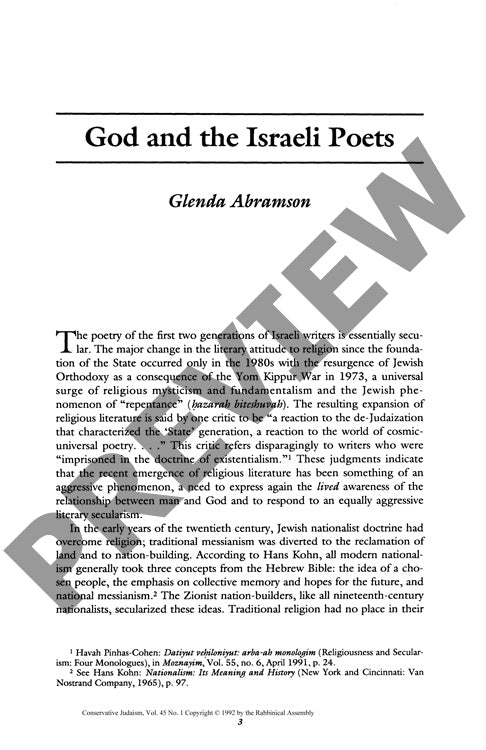God and the Israeli Poets
Couldn't load pickup availability
The image of God in Israeli poetry underwent a dramatic transformation between Israel's founding and the 1980s, shifting from metaphorical device to renewed spiritual presence after the 1973 Yom Kippur War. Though early Israeli poets wrote from a largely secular perspective, they maintained deep connections to Jewish tradition through biblical and liturgical language, even as they reimagined God as a distant observer of human tragedy rather than an active divine presence. Textual analysis of major poets including Yehuda Amichai, Natan Zach, and Dan Paggis reveals a consistent pattern of desacralization, where devotional elements were redirected from divine to human subjects. These writers employed traditional religious imagery ironically, creating tension between sacred sources and modern existential questions, particularly in Holocaust and war poetry. While God remained a persistent figure in Israeli verse, this presence stemmed more from cultural memory and literary technique than theological belief, with poets using the anthropomorphic deity to interrogate questions of divine justice and responsibility amid historical trauma and ongoing conflict. The research traces this evolution through close reading and literary criticism of works spanning Israel's first three decades of statehood.

More Information
-
Physical Description
-
Publication Information
Published 1992
ISBN
-
Publication Credits
Glenda Abramson

